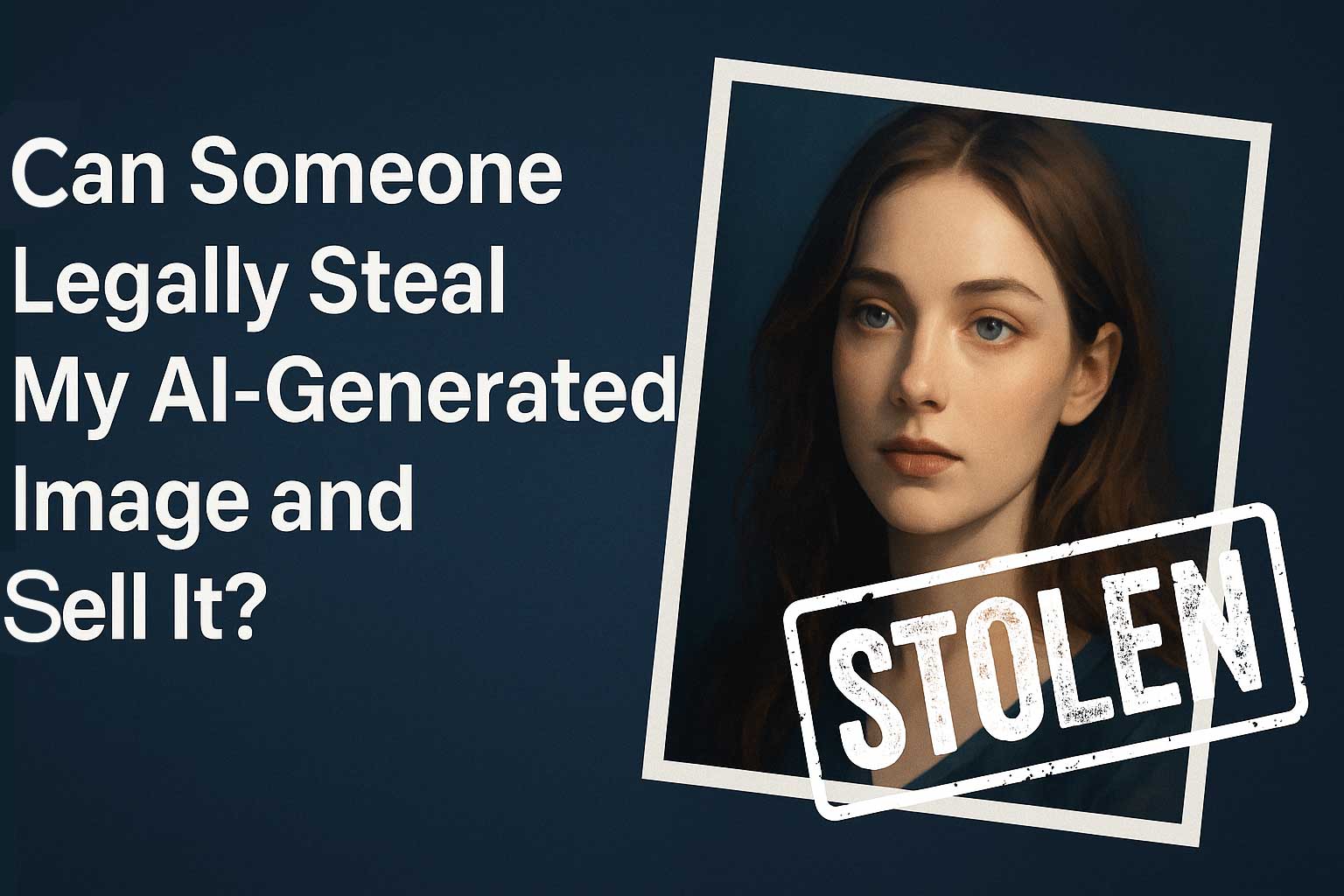Can Someone Legally Steal My AI-Generated Image and Sell It?
🗓️ Published: July 19, 2025

What Happens When Your Creation Goes Viral — Under Someone Else’s Name
In the fast-evolving world of AI-generated art, creators are facing a troubling question: Can someone take your AI image, claim it as their own, and legally profit from it?
If you've spent hours refining prompts in Midjourney, DALL·E, or Stability AI to create a stunning image, this guide will explain your copyright rights, what to do if someone steals your work, and how to protect your AI creations before it’s too late.
Do You Actually Own an AI-Generated Image?
Short Answer: Maybe.
AI-generated content falls into a grey zone. Here's the breakdown:
- United States (as of 2025): The U.S. Copyright Office states that copyright protection only applies to works created by humans. If your image was generated entirely by AI without significant human input, it’s not eligible for traditional copyright.
- However... If your contribution involves meaningful creative input — like combining AI output with manual edits, layering prompts, or transforming results — you may hold derivative rights or authorship under fair interpretation of copyright law.
Bottom Line: If you want to claim ownership, you must be able to prove your creative involvement — not just that you pressed “Generate.”
Can Someone Steal Your AI Image and Sell It?
Unfortunately, yes — and it’s happening a lot.
- People have been caught reposting AI art from Twitter, DeviantArt, and Reddit, then listing it on platforms like Etsy, Redbubble, or Adobe Stock without consent.
- Since the original AI art is often not registered or watermarked, there’s little friction for thieves to claim it as their own.
- Platforms are slow to act unless you file a formal copyright or DMCA takedown.
Real Case: Several artists on ArtStation reported their AI-generated concept art being minted as NFTs by strangers — with no attribution or permission.
What Legal Protections Do You Have?
- DMCA Takedown Notices (U.S. and globally supported)
Even if you don’t have formal copyright, you can file a takedown with Etsy, Amazon, or other platforms. They often accept DMCA requests if:- You were the first to publish the image
- You can prove authorship via metadata or timestamps
- Proof of Creation
- Use services like CertifyRights.com to timestamp and certify your AI images at creation. - Keep prompt logs, generation history, and screenshots. - Trademark Protection
If your image is part of branding (e.g. a logo or character), you may protect it under trademark law instead of copyright. - Creative Commons or License Agreements
Adding a license to your public work helps set clear rules: “Commercial use prohibited,” “Attribution required,” etc.
What To Do If Your AI Image Gets Stolen
- Search for duplicates online
Use reverse image search tools like Google Images, TinEye, or Pixsy. - Gather evidence
Save screenshots, timestamps, and side-by-side comparisons with metadata. - File a DMCA takedown
Most platforms have forms. Include clear proof of ownership. - Consider legal counsel
For financial damages or brand theft, an IP attorney can help you pursue legal action.
How to Protect Your AI Art From Day One
| Action | Why It Matters |
|---|---|
| Timestamp your image with CertifyRights or similar | Proves authorship in legal disputes |
| Keep prompt logs and edit history | Demonstrates your creative input |
| Add a digital watermark | Deters theft and helps with detection |
| License your work | Makes your usage terms legally clear |
| Post your art on reputable platforms | Platforms with DMCA support will act faster |
Final Verdict: Is It Legal to Steal AI Art?
Ethically? No.
Legally? Not always cut and dry.
If your AI-generated image:
- Contains original creative direction
- Is part of a series, brand, or monetized project
- Was clearly published first
...then you do have options for fighting back against theft and potentially seeking damages.
FAQs
Q: Can I copyright my AI-generated image?
A: Only if it shows substantial human authorship. Raw AI outputs are not eligible in most countries.
Q: Can someone sell my AI art as an NFT?
A: Yes, but you can issue a takedown and possibly sue for misappropriation or unfair use.
Q: What’s the best way to prove I created an AI image first?
A: Use a timestamping tool like CertifyRights.com or blockchain certification platforms.
